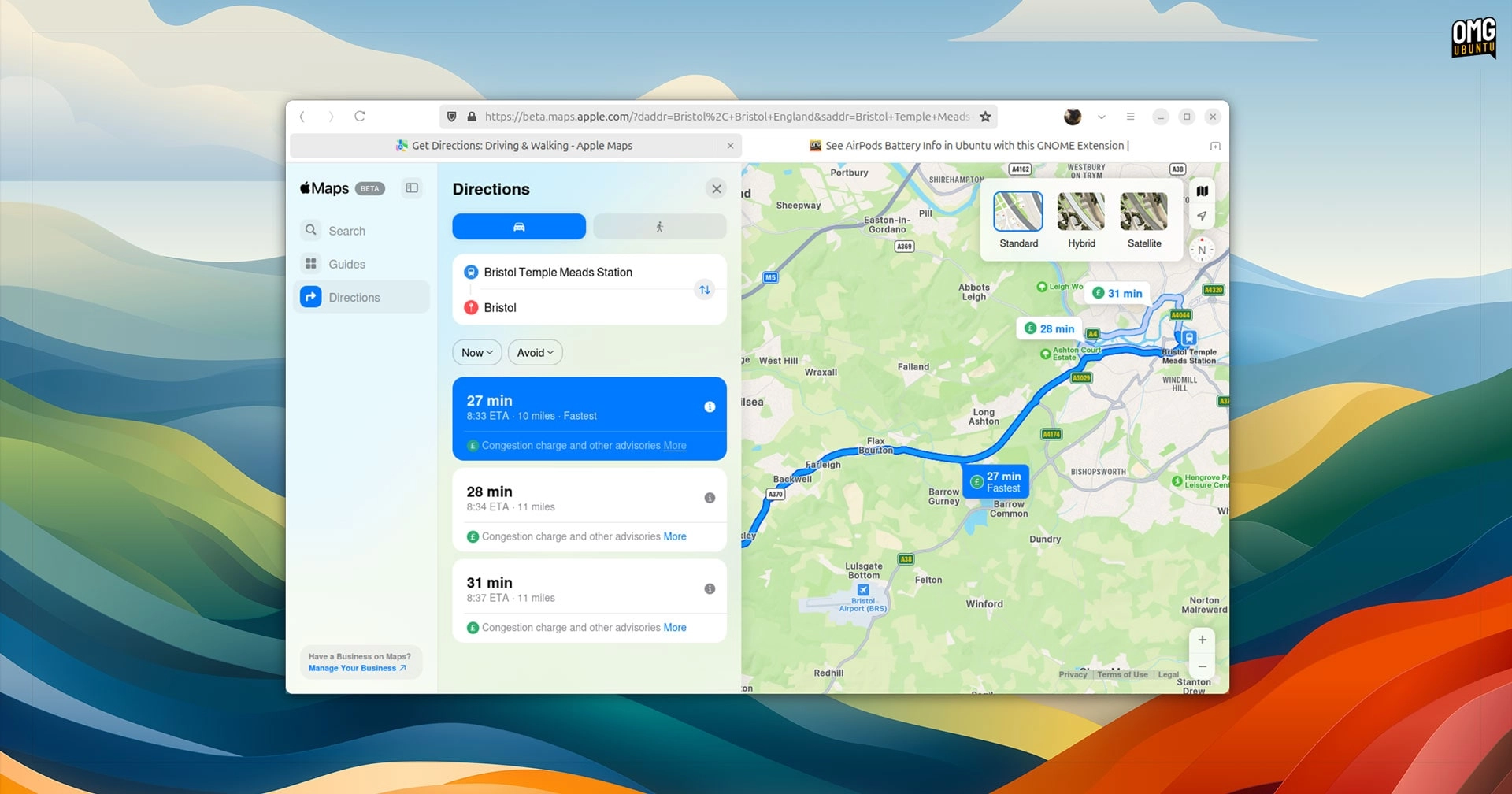This might not resonate well with many Linux users, yet it remains a positive development™ for increased options: Apple Maps is now accessible via the web on Linux.
In July, Apple introduced a beta version of Apple Maps online, marking the first time its mapping service is available on platforms beyond Apple’s own systems (which come with the app preinstalled on iOS, iPadOS, and macOS).
Ideally, every web-based application should be universally compatible.
However, the reality we inhabit often contradicts this ideal.
At first, ‘Apple Maps on web’ (the name given by Cupertino) was accessible exclusively through Safari on macOS and iOS, as well as Google Chrome and Microsoft Edge on Windows and macOS.
This service later gained support for Mozilla Firefox in August, although it remained limited to users on macOS, iOS, and Windows.
The current details on the Apple Maps for web support page confirm that this restriction still applies: only the specified browsers and operating systems are supported.
And still…
Apple Maps on Web Now Loads on Linux
The screenshot above shows Mozilla Firefox 132 (running on Ubuntu 24.04 LTS) with the web version of Apple Maps successfully loaded.
All features work as intended, including search, directions, hybrid images, location detection, guides, places of interest, and essential interactive aspects like scrolling and zooming.
In different web browsers, the experience varies significantly.
Visiting the same URL in Google Chrome, Vivaldi, or GNOME Web (Epiphany) leads to a familiar outcome: a redirection to an ‘unsupported’ holding page with a message that states “your current browser isn’t supported.”
Despite attempts to circumvent this issue, altering the user-agent string does not appear to make any difference.
Apple deserves some recognition for stating upfront that their Maps service on the web would be “available for additional browsers, platforms, and languages” in the future, though they did not provide any specific timeline.
Considering that other web-based services from Apple, such as iCloud, are functional in Linux browsers, I interpret “additional platforms” to include both Linux/ChromeOS as well as Android.
Interestingly, even though there is no official support mentioned, the service currently loads in Firefox on Linux (exclusive to Firefox).
Which is a positive development, I suppose?
“I’d rather dowse for directions in the dark than use this…”
In the past, Apple Maps was infamously deficient in providing reliable routing information. However, today, Maps on iOS stands up well against any other mapping application, offering real-time directions, transit details, points of interest, attractions, and much more.
Even though it has improved significantly, the fact that it comes from Apple might still raise eyebrows among Linux users: “I don’t want to use Apple Maps on Linux at all! Ever! How is this even news!?”.
Nonetheless, having access to a decent alternative (and not the only one, of course) to Google Maps is beneficial for Linux users, even if many, including myself, would rather opt for another service like OpenStreetMap.
This highlights a recurring issue within the Linux community: we criticize companies for neglecting Linux support, voice dissatisfaction when they finally do, and then undermine one another for opting (or having to opt) for their software — which is all part of a Linux YouTuber content cycle, right?
The crux of the matter is: Ubuntu serves as an operating system, rather than a restrictive ideology (at least for most users). Many Linux enthusiasts have Apple devices. This serves as a reasonable alternative to Google Maps. Some individuals would prefer to navigate in the dark rather than use Apple Maps. Others are more open-minded about their options.
Recalculating; more to come?
<pCurrently, I don't observe any sign of Look Around (Apple’s response to Google Street View) being available, but it’s likely that it will be introduced – after all, for Maps to appeal to those not using Apple devices, a certain level of feature equivalence is essential to entice users away from Google Maps.
If you’re curious to see if it works for you (I can’t promise anything), go ahead and visit the Apple Maps beta website to discover!
